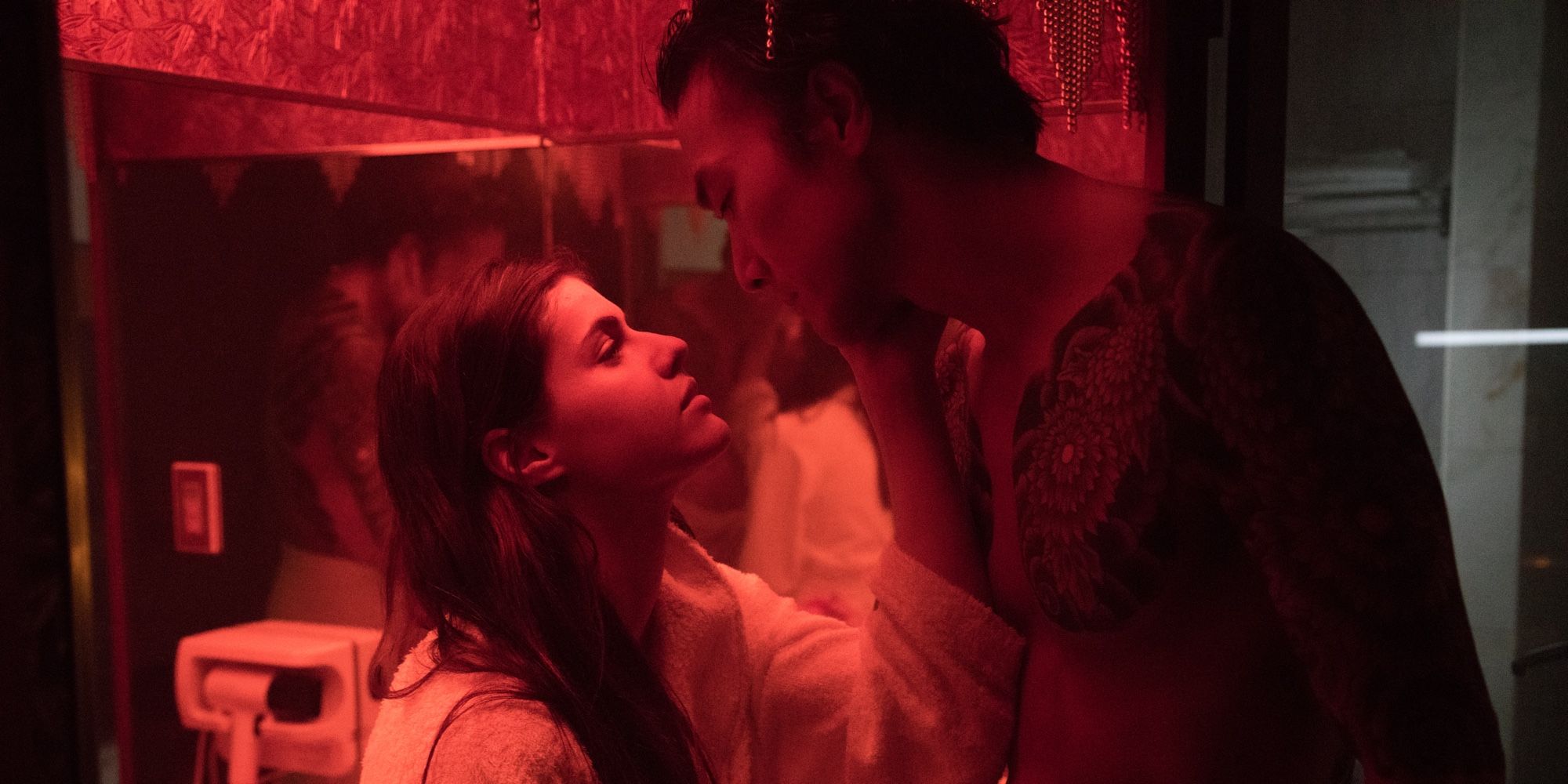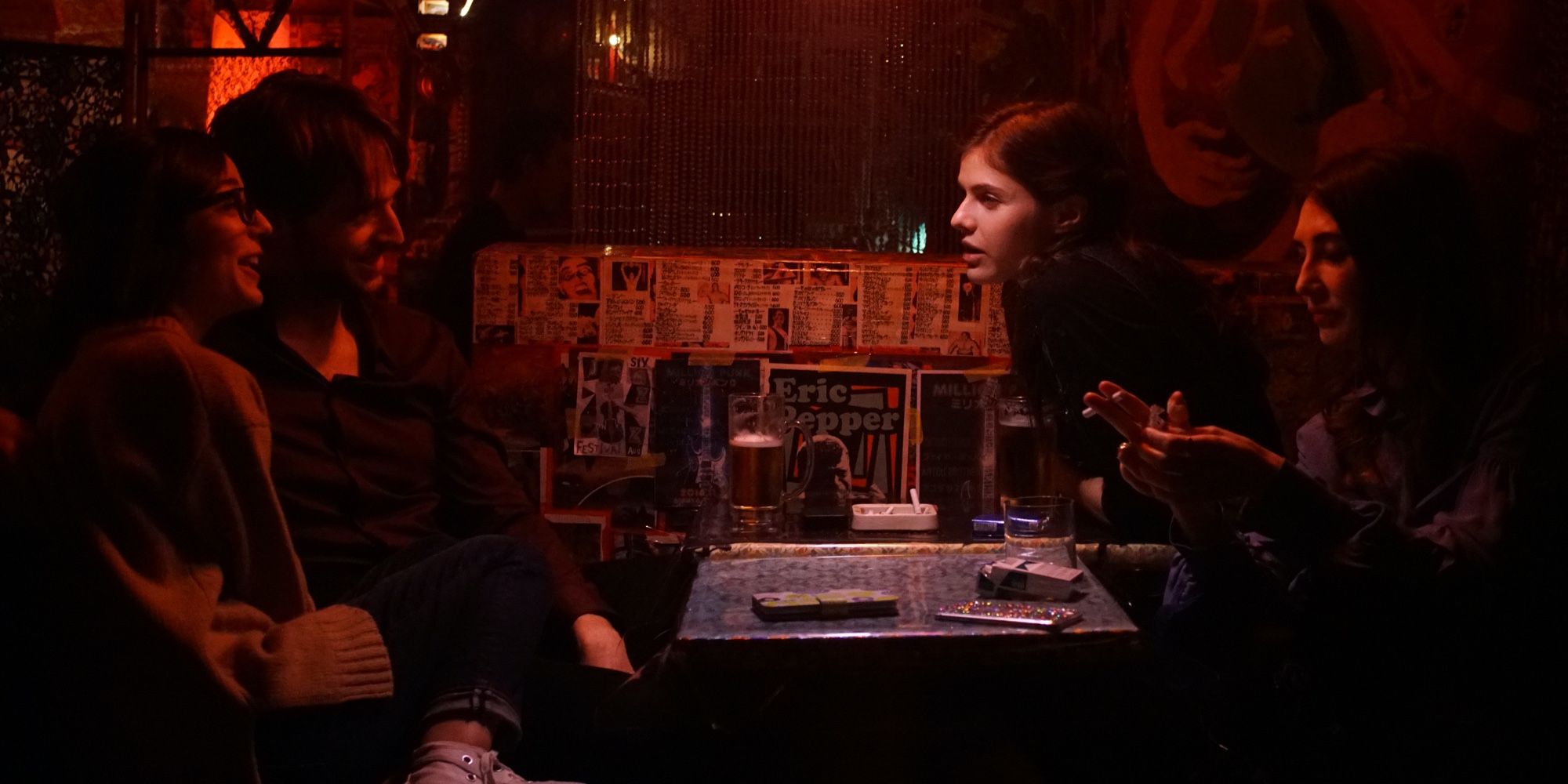Lost Girls & Love Hotels, available now through Video On Demand, is both a thriller and a reflection of its protagonist’s deep loneliness. Directed by William Olsson from a screenplay by Catherine Hanrahan, the film follows American expatriate Margaret (Alexandra Daddario) as she uses random encounters in love hotels to stave off her sadness.
But things change when she meets Yakuza member Kazu, played by Takehiro Hira. The two experience a real connection, despite his dangerous lifestyle and his personal obligations, which may help Margaret make some very necessary realization.
Hira spoke with Screen Rant about what makes his character different from the Yakuza stereotype, and shared some moments and motivations that drove his actions even though they didn’t make it to the final cut.
Can you talk to me about your character, Kazu?
Takehiro Hira: Yes, he's the random Yakuza guy you meet on the street. He's a lone wolf type. William [Olsson], the director, didn't want a typical, violent Yakuza type, but more sensitive. He's got a chip on his shoulder, kind of.
He also picks up girls here and there. He does that to do Margaret, but he ends up falling in love with her. And then the love story begins there, I guess. I think he shares the loneliness and solitude that Margaret is feeling, and that's how they connect and relate to each other.
When you first got the script, what was your initial reaction to the story?
Takehiro Hira: The script itself was really poetic. I think that the film came out to be really poetic, too, as opposed to prose. You have to sort of fill in the gap and read between the lines.
But it was really a nice art piece. It's not a cliche film, where a white American girl goes to Japan like Lost In Translation. I thought there was real connection between two cultures. The cultures may not see eye to eye and don't understand each other 100%, but there was a really strong connection between two people. And I thought it was really beautiful.
Talk to me about the personality that Japan has in this, because it isn't the side of Japan we normally see in film.
Takehiro Hira: Margaret goes to Japan. I don't know why she went there, but I guess she ended up on the street, so to speak. She dug too deep and found herself in trouble, but at the same time, she goes to Kyoto and it's really serene. It has a healing aspect to it.
I guess the theme of the film is happy and sad. They are two opposing aspects to each other, and I guess that's really a Japanese thing. We see a cherry blossom, and we love cherry blossoms - it's beautiful, but we love it because it only lasts a week. That transient and incomplete aspect of things, we see as beautiful. I think the Tokyo in this film was detected as both a violent underground as well as a serenely beautiful [city like] Kyoto.
Your character carries a mysterious menace to him. What is the key to balancing the different aspects of Kazu's personality?
Takehiro Hira: I think Kazu has learned to put up his guard. That's how he grew up in the Yakuza world, or the world that has led to Yakuza. But when he met Margaret, who is a complete outsider, he doesn't have to be Yakuza to her. He can talk to her, person to person. Then he started to take his guard down and be a normal person. I guess that's the balance.
What did you want to bring to Kazu that wasn't necessarily on the page?
Takehiro Hira: One of the things I suggested was that, when they go to Kyoto on the bullet train, in the script, there wasn't any conversation. I felt like Kazu would want to - like, when you go out with someone, you want to explain yourself. You want to tell them who you are and what kind of person you are.
I brought pictures from my childhood, with my parents and all that, and I suggested to William to have a scene where I showed her the pictures of my childhood. And they actually are real pictures of my childhood. It's my family. We ended up keeping that in the film, so that was a really un-Yakuza thing to do. Kazu has never experienced having a girlfriend like that, or a lover that he can really open himself up to. So, that was the change.
I think that was a little script change in the editing room, and then what a side story. She sends her brother to the mental hospital, but it's taken out from the film. She has this big scar, and she sort of excluded herself from society and shut herself off from everything in the outside world. She wanted to change her life, and then maybe she came to Japan, I guess. Kazu, I think, he understands her pain. This is not in the film; I had it as character background.
Kazu probably had lots of problems with family, and maybe he had to make choices to leave then in order to survive in this world, or survive in the Yakuza world. So, I think he understood the loneliness and what she's going through. He knows he's not gonna come out of it, and he knows he's not going to be happy. But he wants her to have a chance to get back on her feet again and be happy. And he wants to go back to the US.
Lost Girls & Love Hotels is now available on digital and on-demand.


